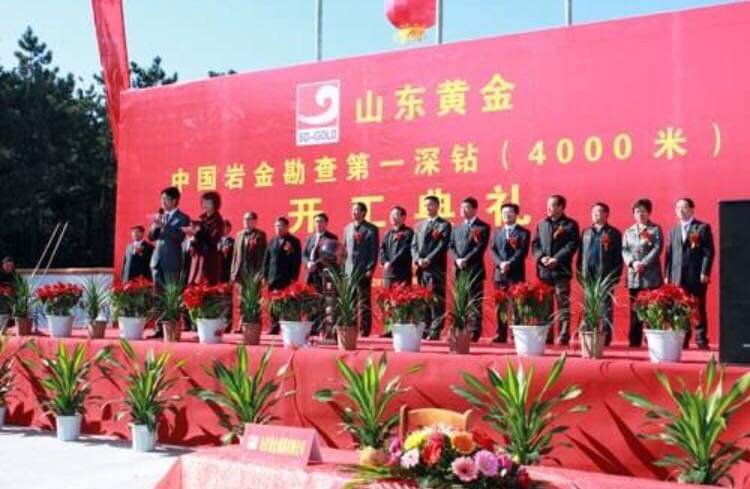Very well presented. Every quote was awesome and thanks for sharing the content. Keep sharing and keep motivating others.
Written By Giordano Baratta, Posted on May 29, 2020

Amidst the beginning of a ‘strategic review process’ due to falling share prices back in January and reduced operations due to the COVID-19 pandemic starting in March, TMAC Resources Inc., the proprietor of the Hope Bay goldfields in western Nunavut, began a controlled transition into temporary care and maintenance.
In early May, it was announced that the Shandong Gold Group would purchase the Toronto-based mining corporation. Also known as SD Gold, the (47%) state-owned Chinese gold mining company will pay $207.4 million to absorb the struggling Canadian firm.
At $1.75 per share in cash for TMAC, the Globe and Mail have reported that the sale was “4.2 per cent above the Thursday close on the Toronto Stock Exchange, but more than 70 per cent below its IPO price.”
The mine has faced issues since it first opened in 2017. Hundreds of millions of dollars were poured into addressing operational issues, including faulty recovery circuitry, and the company was in no position to address debt repayment.
Barry Allan, an analyst with Laurentian Bank Securities, reported that “it would seem this is the best deal TMAC could get” given the circumstances.
Regarding the sale, Yumin Chen, chair of SD Gold, issued a statement where he affirmed his anticipation for “[the] completion of the transaction and the opportunity to invest in the project for years to come as the generational potential of the camp is unlocked. We [SD Gold] look forward to working closely with all stakeholders and local communities in Nunavut to deliver a world-class operation that will benefit the regional economy for generations to come.”
Shandong Gold Mining is paying €189 million to buy TMAC, a struggling Canadian gold company. SOE Shandong Gold Group has listings in SHA & HK. Shandong Gold Mining (Hong Kong) Co., Ltd. will hold 100% of TMAC through direct and indirect methods. https://t.co/zyABIq2RQs #FDI
— Jaap van Etten (@jaapvanetten) May 9, 2020
For the sale to go through, two-thirds of TMAC shareholders must approve the purchase at a special meeting expected to be held in June. However, additional hurdles have arisen that potentially jeopardize the finalization of this transaction.
The potential takeover of TMAC by SD Gold has occurred amid a period of newfound economic nationalism from Ottawa, as the Liberal government has recently sworn to monitor foreign investments more closely, “subject[ing] all…investments by state-owned investors, regardless of their value, or private investors assessed as being closely tied to, or subject to direction from foreign governments, to enhanced scrutiny.”
Similarly, the Kitikmeot Inuit Association (KIA), which holds over one million shares in TMAC and receives one per cent of the value of all gold produced at Hope Bay, equally expressed their interest in a waiting period to analyze the deal more closely before acceding to it, although they tentatively support it.
In a recent release, Stanley Anablak, president of the KIA, stated that “[we] support the Hope Bay Project and all of the benefits it has brought and will bring to Kitikmeot Inui…[but the] KIA [must] determine [if] the proposed sale satisfies KIA’s mandate.”
SD Gold avows that it will meet these mandates and is confident the deal will go through.
“We have been impressed by TMAC’s strong relationships with its local stakeholders and responsible management of environmental and safety aspects of mining, and intend on demonstrating the same commitment as the owner and future developer of Hope Bay’s assets,” said Chen. “We look forward to working closely with all stakeholders and local communities in Nunavut to deliver a world-class operation that will benefit the regional economy for generations to come.”
Canada sold its last 34.000 ounces to China and it wasn’t widely known now they get a new mine and maybee 2 more in Ontario and an off shore drilling right off new foundland the question would I be allowed to purchase anything
Like this in China
Yes and imagine that the Chinese were able to purchase one of the biggest tracts of oil sands but you did not have much to say about that.